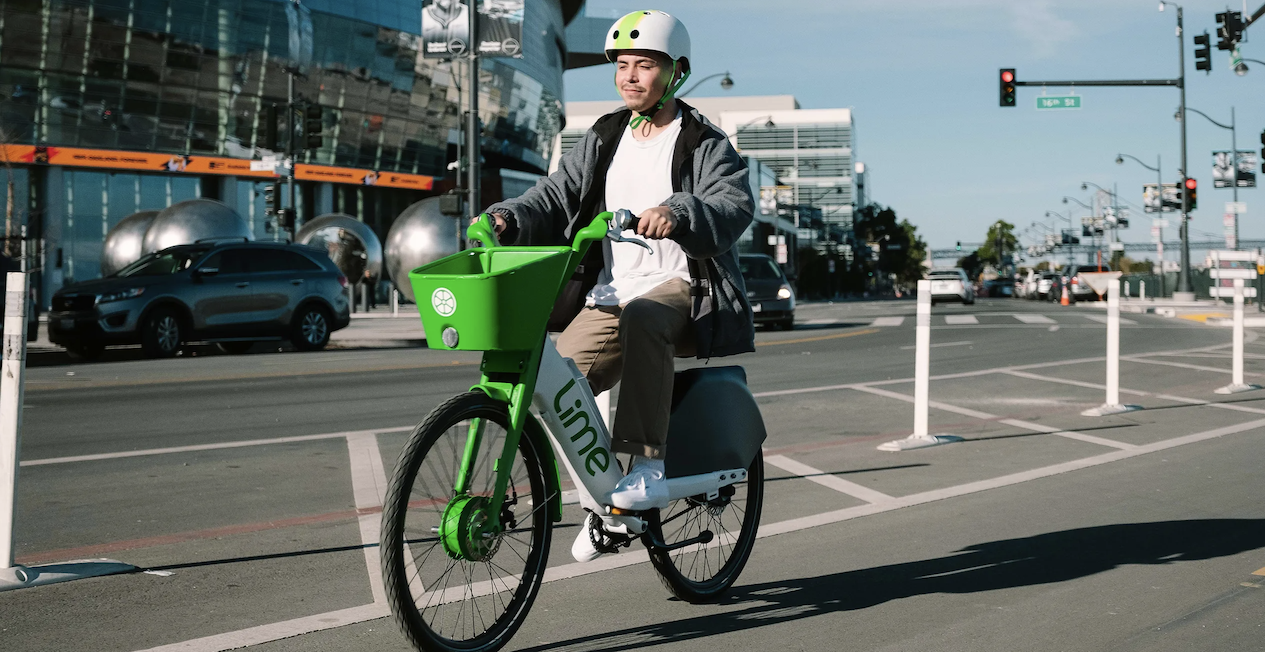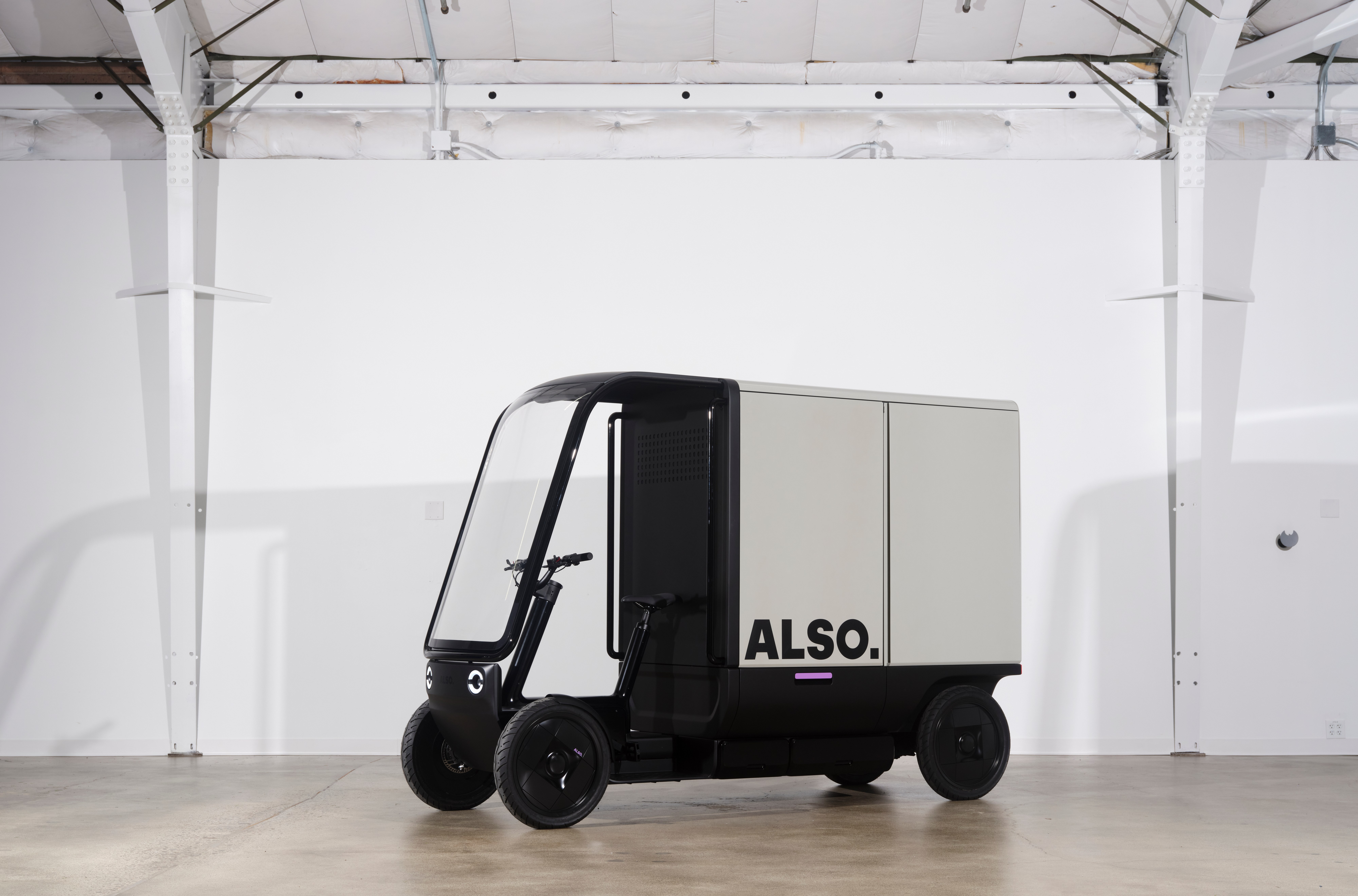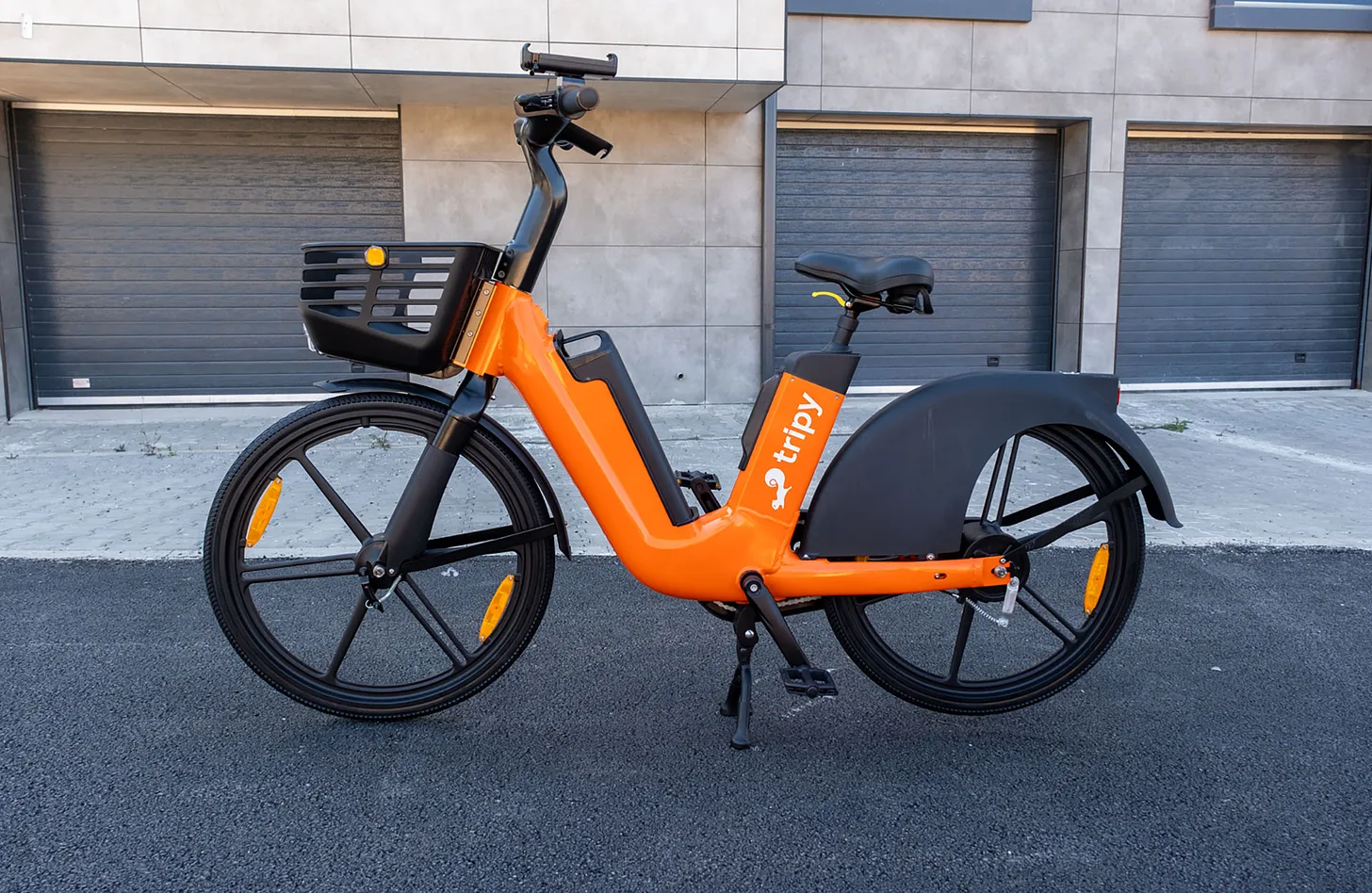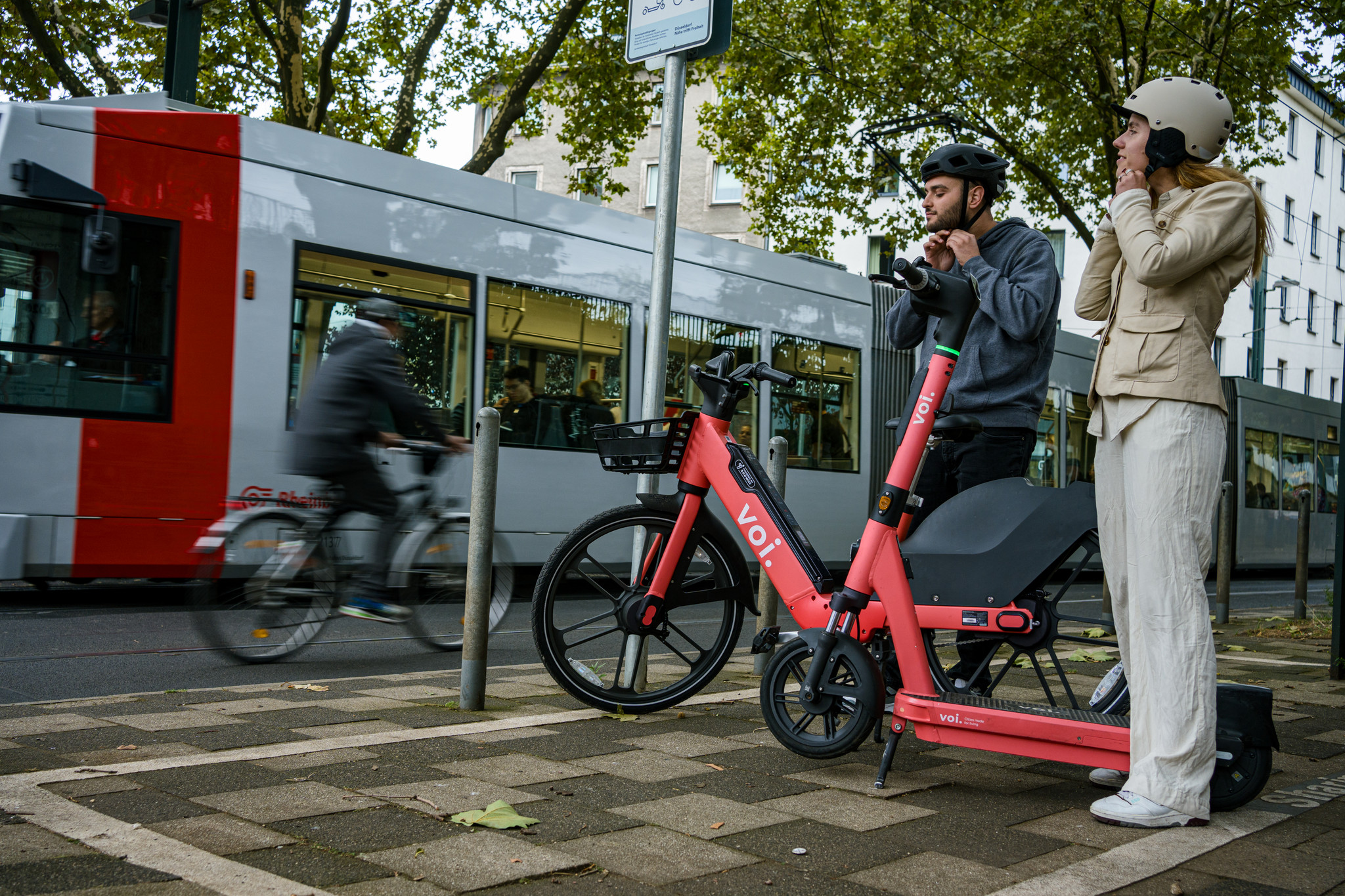For New York City’s 65,000 delivery workers, the bikes they depend on every day have also become a major safety risk.
Fires from uncertified lithium-ion batteries have caused hundreds of injuries, fatalities, and millions of dollars in damages. For years, the responsibility for managing this risk fell primarily on the individual workers.
This dynamic changed with the 2025 enactment of Introduction 30, the "Safe Delivery Device Access" law. This legislation creates a new framework that transfers a significant portion of the safety responsibility from the worker to the delivery platforms they contract for.
Here’s a breakdown of what this law is, what it means, and how it’s already changing the streets of New York.
An Unregulated Boom
The rapid growth of app-based delivery services led to a vast workforce dependent on e-bikes. Facing economic pressures, many workers turned to the most affordable devices and batteries available, which often lacked critical safety certifications. The consequences were severe.
A report from UL Standards & Engagement quantified the toll, finding that e-mobility fires cost New York City a staggering $518.6m in damage and loss from 2019 to 2023. The number of fires increased by nearly 800% in that period, from 21 fires in 2019 to 187 in 2023. These were not minor incidents; they were intense, fast-moving blazes that destroyed apartments and claimed lives.
“Uncertified lithium-ion batteries are extremely dangerous and even deadly,” said FDNY Commissioner Robert Tucker, highlighting what had become a public safety crisis.
The Law

The "Safe Delivery Device Access" law, introduced by Council Member Oswald J. Feliz in February 2024 and enacted in 2025, marks a fundamental shift in the city's approach to e-bike safety.
The law requires that any powered bicycle used for app-based delivery meet the local standards established by New York City for the sale of such devices, which include certification by an accredited testing laboratory. In practice, these standards align with UL 2849 for e-bikes and UL 2271 for batteries.
Crucially, the law protects workers by stating that a delivery service cannot require a worker to obtain a compliant device as a term of employment. This prevents the financial burden, which can exceed $2k for a certified e-bike and batteries, from falling on the workers.
As Council Member Feliz outlined, the goal is to create a system where workers have “the opportunity to trade their unsafe batteries for certified batteries, a crucial step to help resolve challenges concerning fire safety.”
Two Compliance Paths for Delivery Platforms
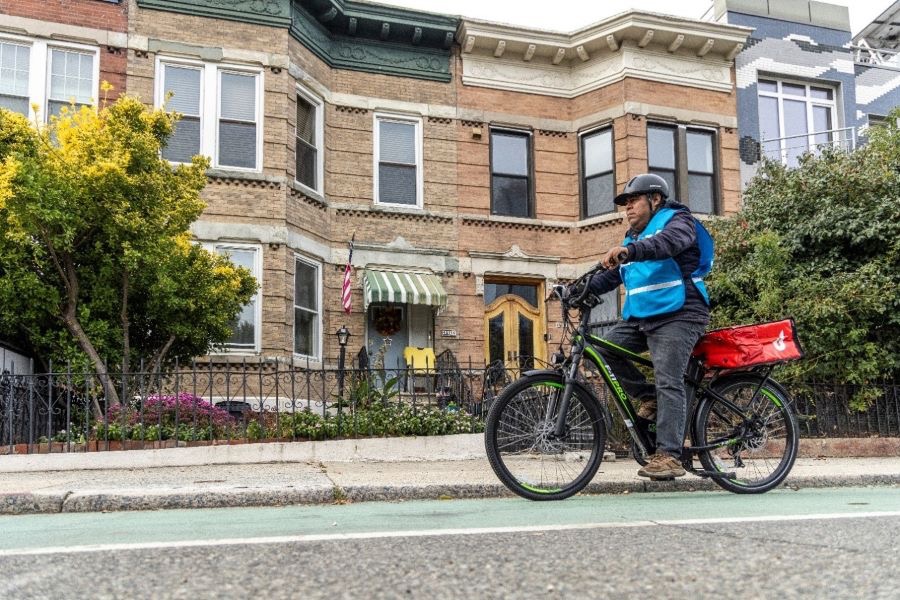
The law provides delivery apps with two clear avenues for compliance, fostering a new market for safe micromobility equipment.
Path 1: Verify Worker Devices
The first option requires platforms to verify that every contracted worker uses a certified, compliant e-bike. Given the scale of thousands of independent contractors, this presents a significant administrative challenge.
Path 2: Fund City-Approved Access Programs
Recognizing the difficulties of verification, the law offers an alternative. A delivery service is relieved of its verification duty if it contributes to a city-approved program that provides safe e-bikes to workers. The finalized rules specify the contribution levels:
- Trade-In Programs: Platforms can contribute to programs that exchange workers' unsafe devices for certified models. Larger companies (with over 5k workers) must fund 8k e-bikes, while smaller companies must fund 2,5k.
- Rental Programs: Alternatively, platforms can subsidize membership in rental programs that provide compliant e-bikes and batteries. Compliance is achieved by securing at least 52 weeks of access to a subscription for half of their contracted delivery workers.
This structure effectively requires delivery apps to fund the city's safety transition, creating a significant opportunity for micromobility companies that supply and manage compliant fleets.
A Broader Ecosystem of Safety
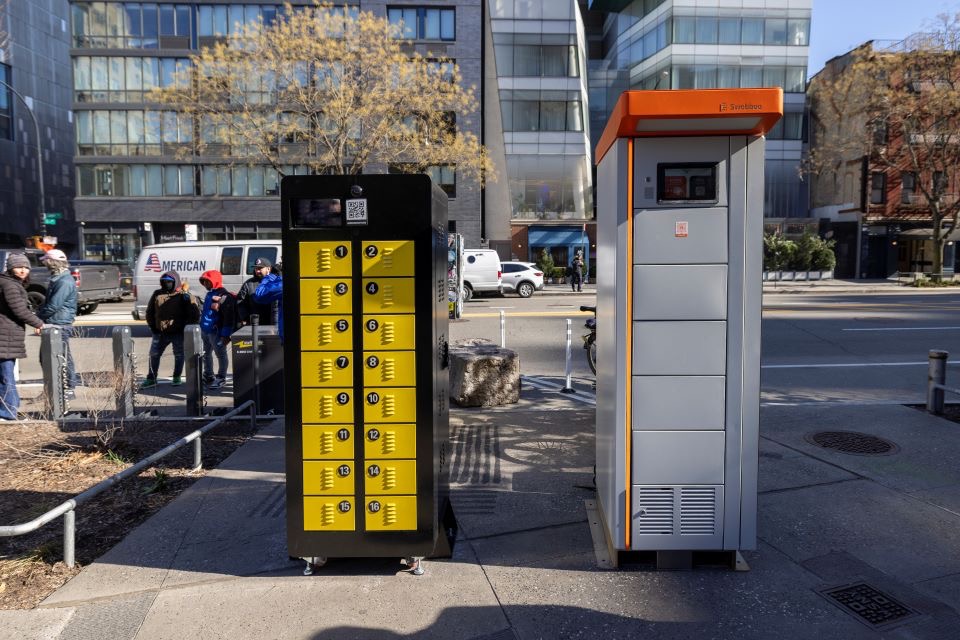
This law is not a standalone measure. This law operates within Mayor Eric Adams' broader "Charge Safe, Ride Safe" plan. Key initiatives include the city's own E-Bike Trade-In Program, launched in early 2025. This $2 million pilot, established in response to Local Law 131 of 2023, provides eligible delivery workers with a UL-certified e-bike, such as the Whizz Storm 2, and spare batteries at no cost. As of September 2025, over 400 e-bikes have been distributed.
The city is also deploying public battery-swapping cabinets from companies like Popwheels and Swobbee, widening bike lanes on busy routes, and running public education campaigns. The FDNY has launched a $1 million effort to inform residents about battery dangers, noting that a majority of fires start when batteries are not even charging
“Our administration is committed to creating safer, more sustainable streets for everyone from delivery workers to pedestrians to cyclists to drivers,” said Mayor Eric Adams.
The Bottom Line
NYC’s new e-bike law is a first-of-its-kind rule that puts the responsibility on companies to help fix the city’s e-bike safety problem. By mandating that delivery apps ensure the use of safe, certified e-bikes without burdening the workers, the city is helping build a safer e-bike market. The early data is promising; the city has already seen a significant decrease in fatalities, with 4 deaths in 2024 compared to 14 at the same time the previous year.
It’s a model other cities dealing with the e-mobility boom will be watching closely.
As the city implements these new rules, the focus is on creating a safer framework for everyone. “Delivery workers have one of the toughest jobs in New York City and supporting their work is part of our efforts to create a safer, more sustainable future,” said NYC DOT Commissioner Ydanis Rodriguez.
/Cover Image Credit: Zoomo

.svg)
%2Bcopy.jpeg)

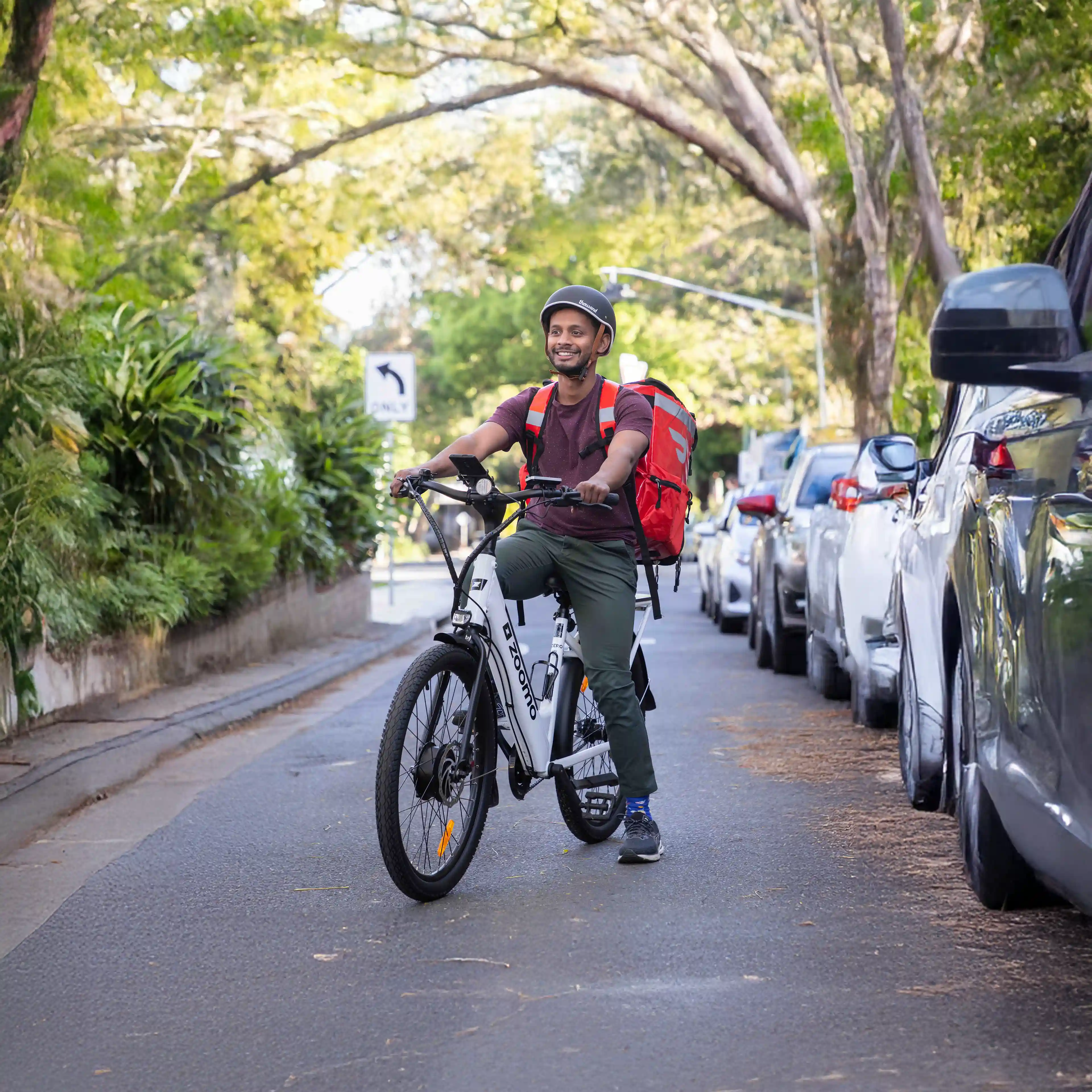
.svg)


